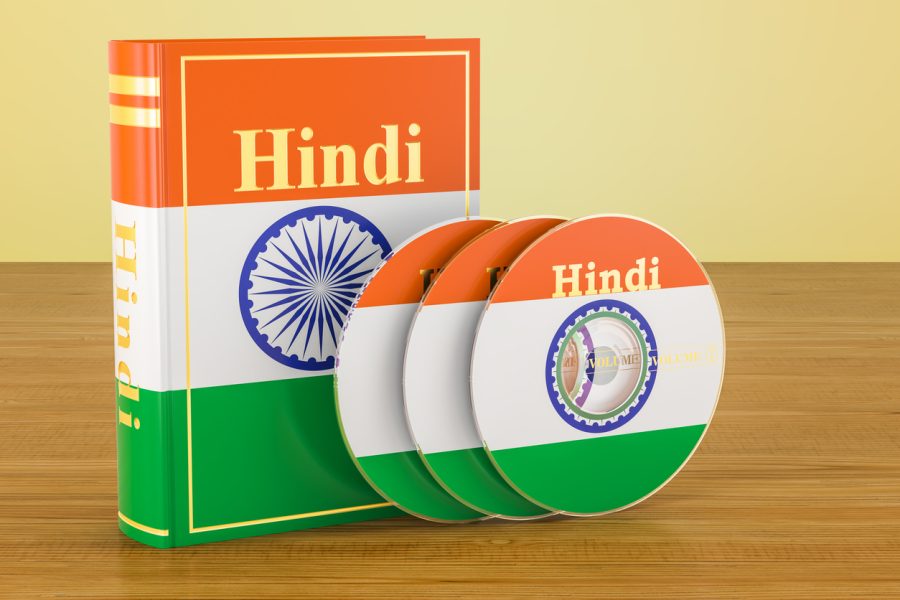
As SC’s ‘Hindi national language’ order riles Bengalis, here’s what Constitution says

A recent Supreme Court order by Justice Dipankar Datta, which referred to Hindi as the national language in the country with India having at least 22 official languages, has stirred up a hornet’s nest.
Justice Datta had made this point while rejecting a plea seeking transfer of a motor accident claims case pending in the Motor Accident Claims Tribunal (MACT), Farrukhabad, in UP to the MACT in Darjeeling in West Bengal, due to a language problem.
While delivering the order, Justice Datta had said that in a country as diverse as India, it is no doubt true that people speak different languages. “There are at least 22 official languages. However, Hindi being the national language, it is expected of the witnesses who would be produced by the petitioner (from West Bengal) before the MACT, Fatehgarh, UP, to communicate and convey their version in Hindi.”
Moreover, Justice Datta noted that if the contention of the petitioner is to be accepted, then the claimants (UP residents) “would be seriously prejudiced not being in a position to communicate and convey their version in Bengali” if the matter was to be shifted to Siliguri.
This order prompted Bangla Pokkho, a national organisation of Bengalis in India, to write to the Chief Justice of the Supreme Court of India, DY Chandrachud, to correct the erroneous statements in the SC order or else it will have “huge ramifications”.
According to Dr Chatterjee’s submission to the CJI there is no term called “national language” in the Indian Constitution and it does not accord Hindi any such status. Quoting from responses from the government of India in the Lok Sabha, he said, India has no national language and there is no provision to declare Hindi, Tamil, Bengali or any language as the “national language” .
In a press conference at the Calcutta high court press corner, Dr Chatterjee said, “Indian Union was not formed on the basis of any language unlike the linguistic states which were formed on the basis of language.”
Also read: After experiments with Hindi as national language, how Gandhi changed his mind
India is a multilingual, multiracial federal union and calling Hindi as “National language” is in conflict with the Constitution of India as it stands and makes non-Hindi people “second class citizens” due to their non-Hindi mother tongue, he added.
Further, he pointed out that Hindi as National language is a myth that has been widely propagated by people no less than Venkaiah Naidu, Rajnath Singh & late Sushma Swaraj…and so he appealed to the Supreme Court of India not to accord any stamp of approval or respectability to this “unconstitutional and false idea”.
What does the Constitution say?
This order then raises the question whether the Constitution refers to Hindi as the national language of India.
The truth is that the Constitution does not single out any one language as India’s “national language”. In fact, Clause 1 of Article 343 states that Hindi in Devanagari script is the Union’s “official language” (not national language).
However, in article 351 in the directive to develop Hindi language, it says that the Union should promote the spread of the Hindi language and it needs to be developed to make it the medium of expression for all the elements of India’s composite culture, said news reports.
The other official languages along with Hindi
The 22 official languages, which are listed under the Eighth Schedule of the Constitution, include Hindi, Bengali, Punjabi, Kannada, Tamil, Telugu, Malayalam, Sanskrit, Assamese, Marathi, Nepali, Oriya, and Urdu, among others. In 2004, a few were added like Santhali, Maithili, Bodo, Dogri etc., which took the total to 22.
Interestingly, English does not figure in the Eighth schedule of the Constitution at all. Instead, it is named as one of the two official languages of the country along with Hindi. It was meant to be used for official purposes for a period of 15 years after the Constitution came into force in 1950.
However, a provision was made in the Official Languages Act, 1963, to continue using English Language for official purposes of the Union and for use in Parliament, even after the 15-year period ended.
Also watch: Karnataka politicos rally behind actor who questioned Hindi’s status as national language
Language used in courts
What is the language used in courts then? English dominates in the courts, as the Constitution states that all the proceedings in the apex court and in high courts around the country and all Bills, Acts, ordinances, rules, and orders etc., at the Union and state levels, should be in the English language.
Any judgment, decree or order passed or made by high courts must be in English.
There are exceptions however. The Rajasthan high court in 1950 allowed Hindi to be used during court proceedings. Similiarly, after 1965, the CJI became an authority to give permission and he allowed Hindi in the high courts of UP, MP and Bihar. But other states like Gujarat, Chhattisgarh, West Bengal, Karnataka, and Tamil Nadu, who approached both the central government and the CJI, were not allowed to use their respective regional languages in the high courts in their states.
There is a view gaining ground that local languages should be used in court, so people can understand the court rulings. But, the SC has said it will take time for that to happen. Meanwhile, subordinate courts in states are allowed to use the local language.


